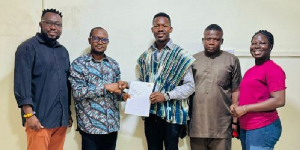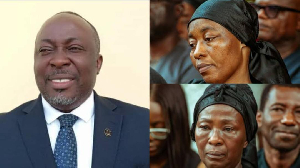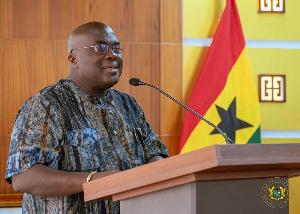In a significant step towards scaling up the Zero Waste Cities program, the Green Africa Youth Organization (GAYO) and the Korle Klottey Municipal Assembly (KoKMA) have signed a Memorandum of Understanding (MoU) to implement the Zero Waste for Sustainable Cityscape project in Accra. This collaborative initiative aims to transform waste management practices within the municipality and contribute to a cleaner and healthier environment.
GAYO is a youth-led advocacy group that focuses on environmental sustainability and community development by empowering youth and local communities to address pressing environmental issues.
Through this partnership, GAYO will work closely with KoKMA to raise awareness about proper waste management and source segregation techniques. This initiative is part of GAYO’s broader effort to promote a community-based circular economy approach to waste management, ensuring just transition of waste pickers, combating waste pollution and poor air quality, etc.
Project Goals and Implementation
The project will focus on several key areas, including establishing a Material Recovery Facility (MRF) and/or a buy-back center to enhance waste collection and recycling efforts within the municipality; and decentralize waste management. This facility will provide a structured system for waste collection and will serve as a model for other areas within the municipality.
The project also aims to develop a waste collection framework that supports the livelihoods of target groups, including waste pickers and small and medium-scale enterprises, ensuring that they are integrated into the city’s waste management architecture.
To strengthen the impact of this partnership, GAYO and KoKMA will collaborate on research activities to assess waste management practices and publish their findings to guide policy and practice. The Assembly will provide spaces for these facilities and lead efforts to register and integrate informal waste pickers, thereby creating a more inclusive and effective waste management system.
Reducing Short-Lived Climate Pollutants
Burning of waste is predominant in low-income communities where access to environmentally sound waste management is not guaranteed. The burning of waste emits certain harmful gases and pollutants like black carbon and particulate matter (PM2.5) which pose severe harm to the climate and to human health.
Landfills are the final destination for the 55% of municipal solid waste collected where mixed waste is sent and undergoes anaerobic digestion and produces methane, another harmful climate pollutant responsible for about 80 times more impact than carbon dioxide.
The project is expected to engage with communities, establishments, eateries, and the general public on the reduction or elimination of open burning to foster cleaner air, ensuring a just transition for the informal sector to collect about 51% of waste in the city of Accra and reduce the quantity of waste going to landfills and divert them to community composting hubs for the production of organic compost.
Empowering the Community and Promoting Zero Waste Systems
The partnership will also support the Assembly’s efforts in public sensitization and awareness creation on waste management and the dangers of open burning. By supporting educational materials and awareness campaigns, the project aims to engage the community and foster a sense of responsibility and participation in sustainable practices.
Furthermore, the project will identify and support young entrepreneurs in the environmentally sound waste management sector, helping to scale up their activities and encourage innovation.
A Model for the Future
This collaboration between GAYO and KoKMA is set to create a replicable model for zero-waste systems in urban communities. By leveraging local expertise and international best practices, the partnership will not only address immediate waste management challenges but also contribute to broader environmental sustainability and climate resilience efforts in Accra and beyond.
The success of this project could pave the way for similar initiatives across other municipalities in Ghana, driving policy change and fostering sustainable development at the local and national levels.
Through this strategic partnership, GAYO and KoKMA are laying the foundation for a cleaner, healthier, and more sustainable Accra, showcasing the power of collaboration in addressing the complex challenges of urban waste management and environmental sustainability.
General News of Tuesday, 8 October 2024
Source: Korle Klottey Municipal Assembly













